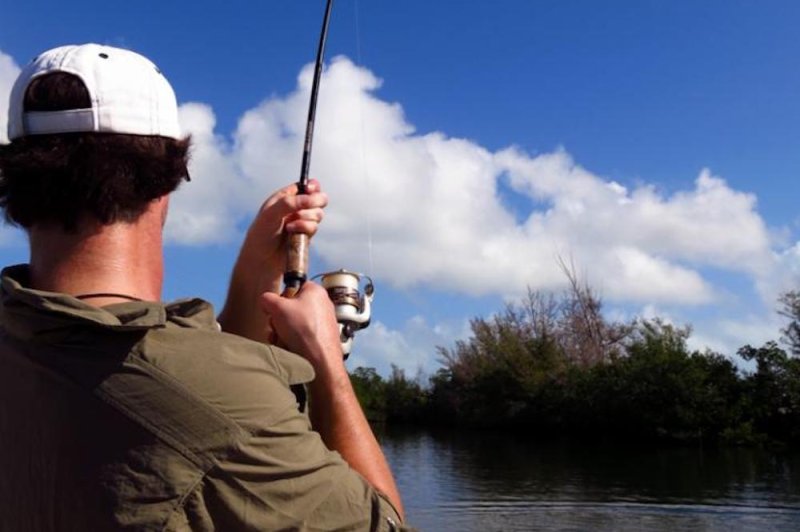Fishers admitted they rarely confront or report poachers. Photo by ARC CoE for Coral Reef Studies/Brock Bergseth
Aug. 14 (UPI) -- In a new survey of fishers conducted by researchers at James Cook University, nearly half of all respondents admitted to having witnessed poaching inside marine protected areas.
Of those who witnessed their peers poaching, the majority ignored the illegal act.
"Enforcement capacities are often limited, so managers are trying to encourage fishers to help out when they see someone breaking the law," Brock Bergseth, researcher at James Cook's ARC Centre of Excellence for Coral Reef Studies, said in a news release. "But until now, we were uncertain about how fishers respond when they witness poaching."
The majority of survey respondents -- hailing from Kenya, Tanzania, Madagascar, Indonesia, Papua New Guinea, Costa Rica, and Australia -- admitted they did "nothing" after witnessing poaching.
Inaction was especially common near the Great Barrier Reef.
As respondents explained, their apathy wasn't without reason. Most acknowledged wanting to avoid conflict.
"This highlights the fact that dealing with poachers is potentially dangerous in some countries -- defending environmental rights can be risky," Bergseth said.
Researchers at James Cook say conservationists and fisheries managers must do more to educate the public on ways to report or confront poachers while minimizing the risk to themselves.
"We know that when fishers are engaged in the management process of marine protected areas they tend to follow the rules more often," said researcher Michele Barnes. "Here, we show that empowering fishers can also encourage voluntary enforcement."
The survey's findings -- published in the journal Nature Sustainability -- suggest empowerment and education can inspire better outcomes.
"Encouragingly, many of the fishers who took action did so because they held stewardship beliefs, or saw that poaching personally affected them," Gurney said. "These ideas can be further reinforced and leveraged by managers to improve conservation outcomes."















